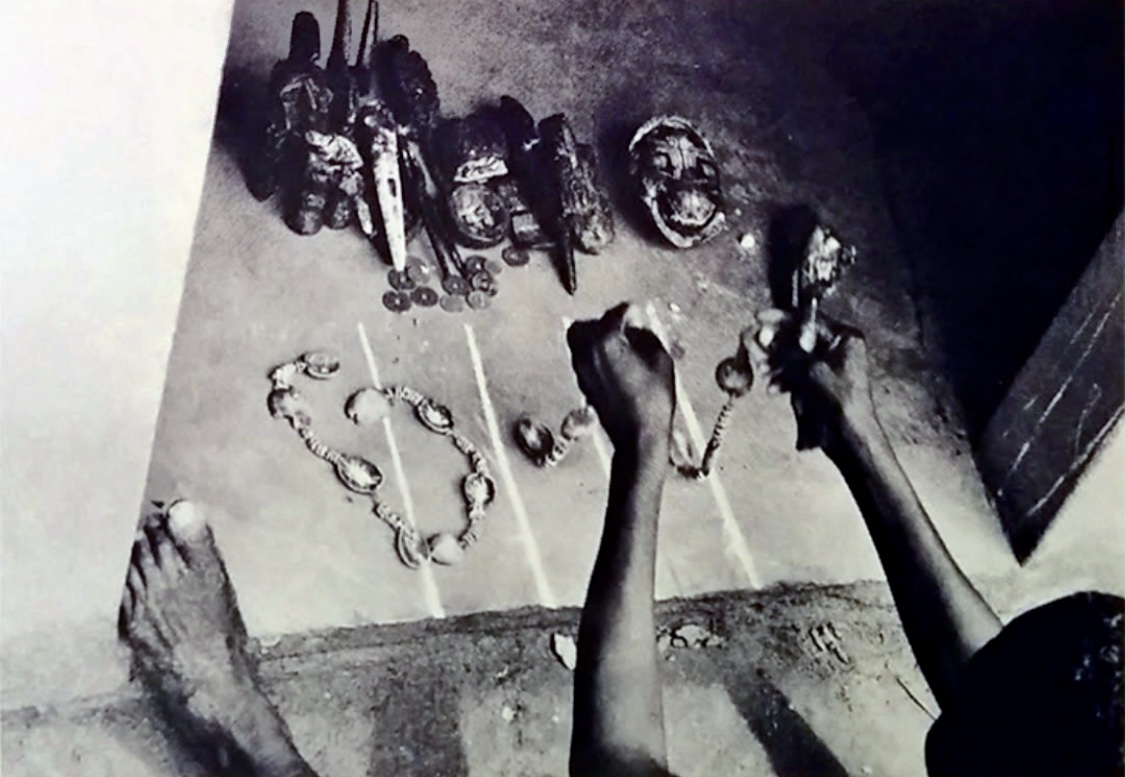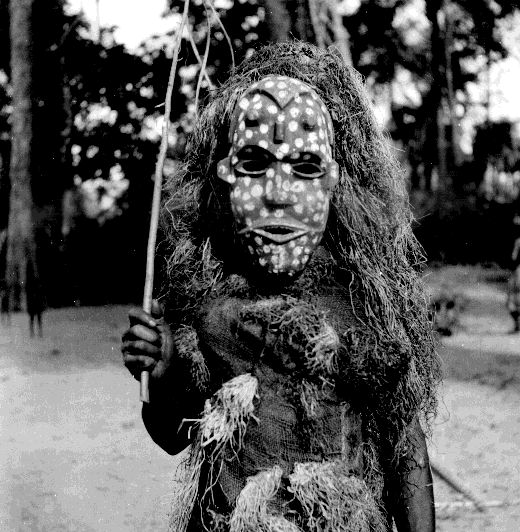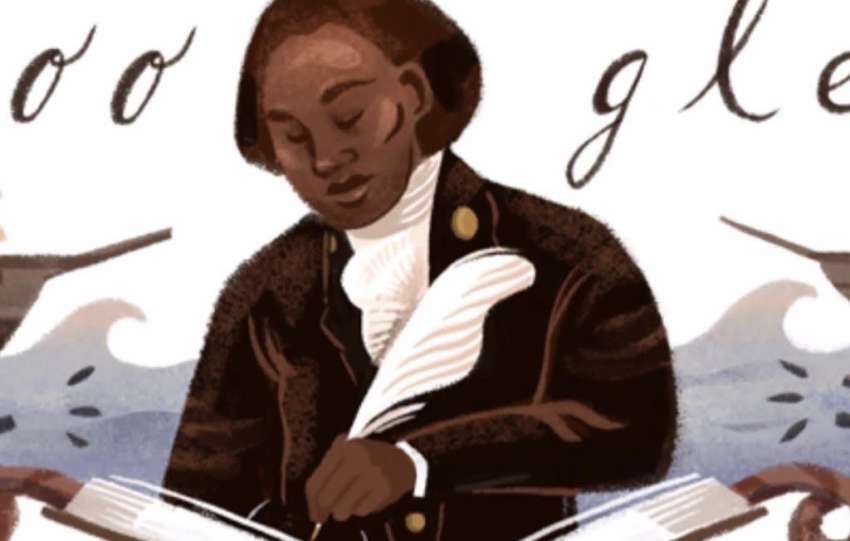
Stephen Nwedozie, a renowned diviner from Umuazu, Nise, was photographed by Herbert Cole in 1966, casting afa chains. Afa, the Igbo system of divination, is a vital part of the culture and religious practices, offering spiritual guidance and solutions to personal and communal issues.
Divination, or afa in the Igbo language, is an ancient practice used for spiritual insight, decision-making, and problem-solving. It is central to Igbo religious and cultural life. Diviners, known as dibia afa, are highly respected figures in Igbo communities, serving as intermediaries between the physical world and the spiritual realm.
In the traditional Igbo worldview, ancestors and spirits are deeply involved in everyday life, and afa divination is a way to communicate with them. The diviner employs several techniques to gain insight, including casting objects like chains, seeds, or cowrie shells, interpreting their patterns to reveal hidden truths or answers to the client’s questions.
In the photograph from 1966 by Herbert Cole, Stephen Nwedozie is seen casting afa chains. The afa chains are a series of linked objects, often cowrie shells or specially prepared pieces, which fall in unique patterns during the divination session. The pattern, combined with the diviner’s spiritual understanding, reveals insights about health, prosperity, misfortune, or conflict, which can then be addressed through rituals or sacrifices.
Herbert Cole, an anthropologist and art historian, is known for his extensive work on African art and culture, particularly the art traditions of Nigeria. His research and photographs from the 1960s documented not only the aesthetics of African material culture but also its embedded spiritual and social functions. His photograph of Nwedozie offers a rare visual record of a practice that was often private and restricted to members of the community. It captures the intense focus and spiritual significance of afa divination, emphasizing the role of the dibia as both healer and spiritual guide.
This period, the 1960s, was significant in Nigerian history, with the country newly independent (1960) and undergoing rapid political and social change. In many ways, Cole’s documentation of Nwedozie’s work reflects the tension between modernity and tradition during this time. Although colonialism and missionary activities had challenged many indigenous practices, divination remained a resilient aspect of Igbo culture.
The act of divination is not just a religious practice but also an essential aspect of conflict resolution, decision-making, and maintaining social order. The role of the diviner, therefore, extended beyond spiritual consultation to matters of governance and community leadership.



